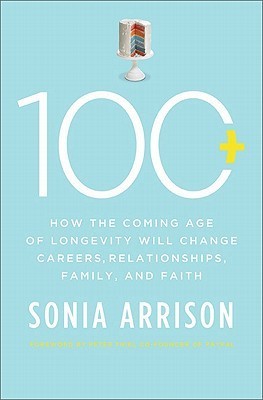Kindle Notes & Highlights
Started reading
May 9, 2025
Since the myths of the past and the present have been exposed, Arrison argues, we must follow the critical path forward: if we cannot forget or accept decline, then we must fight it and work to create a future no longer dominated by aging and death. The time has come for death to die.
The most insidious form of complacency makes a claim about other people—that aging and death will be solved by others and that we are mere spectators to the unfolding of technology.
We are not mere spectators, and Arrison is no mere prophet. Instead, she truly is a great general, who is marshaling all of the vast forces of humanity in its titanic struggle against the Great Enemy of the world, whose true name is Death.
We are at the cusp of a revolution in medicine and biotechnology that will radically increase not just our life spans but also, and more importantly, our health spans.
Dr. Robert Vandre, chairman of the Armed Services Biomedical Research Evaluation and Management Committee, thinks so. “Ultimately, we will be able to grow limbs,”
In 2006 60 Minutes aired a program titled “The Quest for Immortality” in which the venerated media institution opened with these sentences: “How’s this for an offer you can’t refuse: how would you like to live say, 400 or 500 years, or even more and all of them in perfect health? . . . There are those who say it is well within the realm of possibility.” 3 In 2008 The Economist published an article with similar sentiments, titled “How to Live Forever: Abolishing Ageing.”
But change is not driven by science alone. For longevity science to be funded, accepted, and embraced, a cultural shift
His message is that there is a tsunami of longevity-related research in the works and that “there is nothing more important.”
In discussing the topic, Dr. Oz told Oprah’s audience that it is possible to talk about “very specifically allowing us to go into our second century of life with the vitality and the bounciness that you have when you’re a young person.”5 In fact, he said that Joe Cordell, a man who practices caloric restriction and who Dr. Oz interviewed in the audience that day, “may become the first man in history to live to be 150 years old.”
“Death has never made any sense to me,” Larry Ellison told investigative reporter Mike Wilson, who wrote an authorized biography of the so-called bad boy of Silicon Valley. “How can a person be there and then just vanish, just not be there?. . . Death makes me very angry.
“The great unfinished task of the modern world is to turn death from a fact of life into a problem to be solved—a problem towards whose solution I hope to contribute in whatever way I can.”
Aging is a whole-body issue, but the FDA has been set up to address specific diseases. The longevity coalition agrees that this is an important problem and suggests that the FDA “be charged with developing new guidelines for testing interventions that do not necessarily target a single specific disease but that retard, arrest, or reverse the structural degeneration and loss of functionality associated with aging.”
This last part is especially important because no private firms will fund antiaging research if it is sure to be rejected by the FDA based on how the administrative definitions work.
We are at the cusp of a radical change in social consciousness. Humanity is finally in a position to shed its acceptance of disease and death and instead launch a true offensive against it.
Such posturing might make for exciting headlines, but it can also elicit the opposite result of its intention: that is, if individuals are convinced that the longevity agenda will advance no matter what they do, then they may be inclined to put their efforts elsewhere.
only is wrongheaded but also does a disservice to everyone who will suffer and die without the fruits of biotechnical innovation. The longevity revolution depends on the strong and sustained efforts of a diverse set of people who refuse complacency. Scientists,
Other heroes must come forward—perhaps


